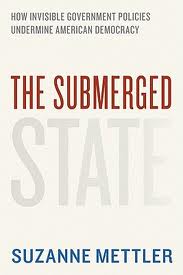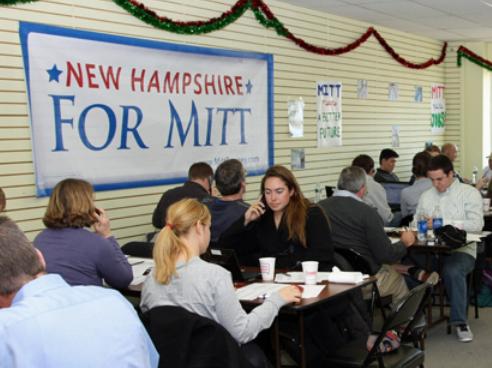
The Myth of the ‘Mighty Minnows’: Small nations aren’t the economic successes they think they are (or may become)
Nationalist movements often argue that small countries are more economically successful than big ones. The Scottish Nationalist Party claims that independence would allow Scotland to advance from ‘its subordinate position within the UK, and generate a new prosperity for Scotland’. And former Plaid Cymru MP, Adam Price, who is currently taking a career break at Harvard University, goes further, wrapping the ‘small equals rich’ argument in a cloak of pseudo-academic jargon. Price’s article, published in an on-line student journal, is entitled ‘Small is Cute, Sexy and Successful’. He argues that smaller countries grow faster because they are more open to trade, more socially cohesive and more adaptable. Rather optimistically, Price even argues that differences in population size alone account for ‘mighty minnows’ outperforming the big five (UK, Italy, …

Book Review: The Submerged State: How Invisible Government Policies are Undermining American Democracy
The Submerged State: Atlantis? No, a slim and highly readable volume in which Suzanne Mettler describes how certain public policies have become highly resistant to reform and damaging to American democracy. By ‘submerged state’ Mettler means a set of indirect government subsidies and benefits whose size and beneficiaries, indeed whose very existence, is largely invisible to the public. Some types of governmental intervention are highly visible: most citizens are aware of them and know something about what they are, how they work and who benefits from them. For instance, most people know about the veterans’ benefits offered by the G.I. Bill. But others are more ‘submerged’, hidden either because they are channelled through private delivery organizations or because they come to …

The seeds of a green spring: young leaders meet in Oxford to debate Pakistan’s future
For three days (February 3-5) Oxford University was the venue for the Pakistan Future Leaders’ Conference (PFLC), attended by some 300 student-delegates hailing from around 50 universities and colleges in the United Kingdom. This major event was organised by Oxford University’s Pakistan Society, in collaboration with the Oxford Union, and the Pakistan societies of Cambridge University and the School of Oriental and African Studies. Such a large gathering of young Pakistanis in Oxford was reflective of an emerging ‘youth moment’ currently setting the course of politics in Pakistan. Cricketer-turned-politician Imran Khan, who is also an Oxonian, has already tapped into this phenomenon. His recent political rallies in Lahore and Karachi attracted exceptionally large crowds of younger people, forcing the country’s …

“Hi, I’m a volunteer with the Mitt Romney campaign, calling you from my computer…”
So Mitt Romney won what the Washington Post calls a “decisive victory” in Florida yesterday, and while the Republican presidential primary isn’t quite over (a majority of the votes still went to his three remaining rivals, donations keep coming in to Newt Gingrich especially), the former Massachusetts governor is now well-positioned to lock up the nomination on “Super Tuesday,” March 6, where people in eleven states cast their votes. If Romney becomes the candidate, a closer look at his current campaign can help us understand how he will fight the general election. In past cycles, most recently of course in 2008, the way candidates fought their primary gave many clues to how they ended up fighting the general election—in terms …
Federalism in Nigeria: Contextualising Boko Haram and the Fuel Subsidy
When Boko Haram killed nearly 70 civilians over the Christmas holidays, many observers in the Western media were quick to chalk it up to wanton Islamic extremism. The attacks, it was concluded, reflected global jihadist activity. Emphasis was placed on the group’s links to al Qaeda. This narrative is shortsighted. For one, it ignores Christian retaliation just days later, including the bombing of a madrasa that injured seven. More broadly, it decontextualizes the violence. Nearly 500 Nigerians were killed in the northeast in 2011 due to sectarian conflict. Suicide attacks, car bombings, and assassinations-by-machete have been documented throughout the country, Africa’s most populous and the linchpin of Western engagement with the continent. Such killings are not new to Nigeria: religious strife has been a constant for decades, …

Supporting the past, ignoring the future? Public sector support for the media
Though Western media systems are going through a rapid and often painful transformation today with the rise of the internet and mobile platforms, the decline of paid print newspaper circulation, and the erosion of the largest free-to-air broadcast audiences, the ways in which governments provide direct and indirect support for the media have remained largely unchanged for decades. The bulk of the often quite considerable direct and indirect subsidies provided continue to go to industry incumbents coming out of broadcast and print, while innovative efforts and new entrants primarily based on new media receive little or no support. In central ways, public support for the media remains stuck in the twentieth century, and some parts of these support systems are …
Effective governance
The credit crunch and the disillusion with parliamentary democracy prove that there is a problem with the way we govern ourselves, as organisations and states. I would like to propose a solution which, if implemented, would go a long way to providing effective governance, economic growth, and social stability. THE PROBLEM All our existing institutions and regulations failed to prevent the credit crunch, the Madoff and Stanford frauds, the obvious risk of bankers lending to people who can’t afford to repay, and the collapse of numerous financial organisations. The banking crisis was caused by banks knowingly lending to people who couldn’t repay; therefore the crisis was predictable. So why did they do it? Because current governance processes don’t work. In …

Which Entity is the Government of Libya and Why does it Matter?
In the past couple of days, Germany and Canada have joined the group of countries that have declared that they consider the National Transitional Council (NTC) in to be the “legitimate representative” of the Libyan people. But what exactly does this mean? According to the BBC, the group of countries extending this recognition includes France, the UK, Italy, Spain, Germany, the UAE, Qatar, Jordan, Gambia, Senegal and Australia. Russia and the United States have had meetings with the NTC and have also made similar declarations about the illegitimacy of the Gaddafi regime and about the legitimacy of the NTC (see previous post by Stefan Talmon on the US position in March). What are the legal implications, if any, of these …









